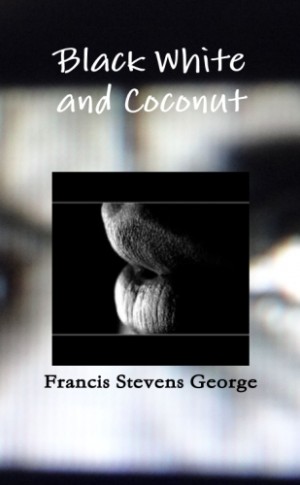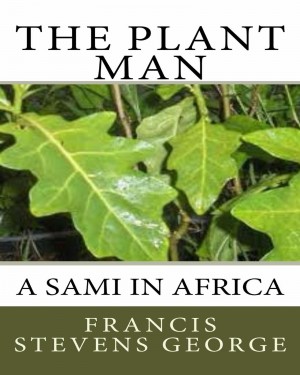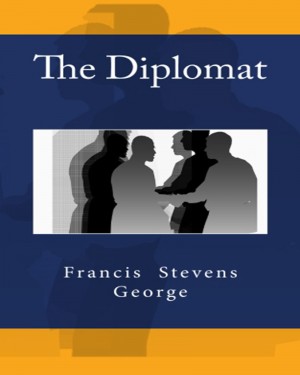Interview with Francis Stevens George
Published 2015-07-23.
What do you read for pleasure?
Technology related books
When did you first start writing?
I actually starting writing in 1983. I wrote some articles and short stories in school in The UK. These were published in the school magazine. I also started to write some stories about a world I created. However, due to theft,. I lost all my notes.
Where did you grow up, and how did this influence your writing?
I grew up in Freetown, Sierra Leone. I later moved to the UK. For the past 25 years, I have lived in Oslo, Norway. I had a happy childhood. I grew up with my grandparents. My granddad was the President. I lived with him in the President's Lodge with body guards and servants.
Some of the body guards would tell me stories in their spare time. I remember listening from the age of 6 to tales of magic. I suppose that stimulated my imagination.
I also grew up with books. My grandfather had two huge library. I was encouraged to read from a very young age.
How did you end up in Norway and what is the status of African writers in Norway?
I came to Norway in 1991 from the UK. I had a Norwegian girlfriend back then and she persuaded me to move to Oslo. When I got here, I went to school and took an MBA degree. I then worked in the corporate world for 17 years or so.
The status of African writers in Norway is rather low key. To be frank, since I started publishing in 2014, I have not seen any other African writer. There have been several, but their autobiographical rather than story telling.
I do believe I am breaking a new ground. In my stories, I use metaphors to highlight issues facing Africans, issues related to Norway and the African continent. I also use Norwegians as my main characters alone or in combination with an African. I bring the Norwegian and some African cultures together in my story telling.
What's the story behind your latest book?
The last one published...or the one I am working on? OK...the last one published...
We are two years into the future, and the national security and future economy of Norway is at stake. The very first Ambassador from the African Union Federation is the central character in a story that sees Norway wanting to stake its economic future through big investment in Africa.
Ambassador Geraldo is not entirely convinced of the benefits of Norwegian investments for ordinary Africans. He is also concerned about permeating old attitudes. Through his character, we see a type of African diplomat with a background from the West; with a thorough understanding of international issues; with a deep appreciation of African political and economic history. We see changing attitudes in which the interest of the Africans becomes paramount; we see a change in which overseas investment are just accepted lock stock and barrel but questions are raised.
The novel is rich in history. Through the fictional character, Ambassador Geraldo, we are provided with the history of the OAU, attempts to create a United States of Africa and the roles of post-colonial leaders such as Emperor Haile Selassie, Kwame Nkrumah and Leopold Senghor.
We are aslo served the history of the Kingdom of Dahomey and the Abomey people.
Francis has cleverly used history and historical references to project a future that not entirely fiction.
All people and peoples are living histories. Understanding the linkages between past and present is absolutely basic for a good understanding of the condition of being human. This novel provides some understanding of the efforts of Africans to unite.
In the novel, Francis gives a future in which Africa is a Federation on her way to becoming a United States of Africa. He gives a future in which Africa is a major economic and world power. Using current statistics, he futurize an African market with a middle class of over 300 million people.
Through another fictional character, a political adviser in Norway, we get an analysis of Norway current and future economic challenges; security issues and a short history on border issues with Russia. More interesting is that Norway now sees her economic future tied to Africa. Like the Chinese, Norway now sees opportunities for investment and trade with Africa. This is change in policy is driven by, ironically, an extreme right wing government whose economic policies calls for investment over Aid with Africa.
The Diplomat can be read like a mini-textbook where Francis has used fictional characters to present facts. The reader is served the story of Africa-China relation, and a status report that provide insight into the economic situation in Norway in 2017 and beyond.
Cleverly using memos and diplomatic cables, the author gives us a picture into future economic and political relations.
Ambassador Geraldo gives us an outside perspective of Norwegian values and attitudes; he gives us interesting observations and reflections on the Norwegian “model” and mentality.
Tell us about your book, The Plant Man.
The Plant Man is a fictional story of Mikkel, a Sami man from Kautokeino in Northern Norway who travels to The Central Africa Republic to search for undocumented plant species.As a Sami, Mikkel identifies with parts of Africa and some Africans. He would tell his African colleagues about the villages in Kautokeino. Mikkel strongly believed that he, as a Sami once shared the same plight as the black African people in South Africa or Zimbabwe for example.
My intention with the novel was to bring out the connection between some of Sami culture and some Africa cultures, like the Masi. I also used the novel to highlight the challenge of deforestation. My main character, not only had to contend with the impending civil war in the country, but also the fear that the forest which holds the plant he has discovered will probably be lost. Central Africa is a large jungle that has yet to be exploited. It is a fact that more 2000 species of plants are yet to be document or even unknown. We now know that Timber logging is fuelling the war in the country, just as diamonds (blood) fuelled the wars in Liberia and Sierra Leone.
In addition I also examined Aid politics and some of the true stories of bad aid.
You know, the plant is a metaphor for the world we live in with super computer, hybrid cars, beneficial DNA mutations, environmental effects. I have made it up by combining the DNA and other properties of existing plants. It contains the DNA of three well known plants to day that are used by the cosmetic companies. We are obsessed with beauty today. New technology has enabled plant stem cells and this means, that the quest for extraordinary plants to get stem cells is real.
The plant is 10000 times more potent than Gotu Kola, Edeweiss and Argan all put together. Gotu Kola, Edeweiss and Argan were held up as having some of the best ingredients in cosmetic products for anti ageing.
What motivated you to become an indie author?
My partner....first and foremost. When we met three years ago, I showed her some material I have written and she asked..."why are you not an author"...The rest as they say is history.
On another level, I have an imagination. I suppose from my childhood, there are all these colourful and conspiracy in my head.
Describe your desk
Clutter
What book marketing techniques have been most effective for you?
Facebook,and local news paper interviews. I have also used google + for business and Linkend
How has Smashwords contributed to your success?
On the way to success.......Yes. Smashwords has help a great deal.
What is the greatest joy of writing for you?
Telling a good story!
What do your fans mean to you?
The world!
Smashwords Interviews are created by the profiled author or publisher.
Books by This Author
Black White and Coconut
by Francis Stevens George
Price:
$3.00 USD.
Words: 12,930.
Language:
British English.
Published: June 8, 2015
.
Categories:
Fiction »
Urban
With nuances, humor and existential slant Francis Stevens George tells a story about two black, fictional characters, one British and one African, and their efforts to integrate into Norway. The story was first written in 1999.
The book provides a credible picture of the prejudice that the various minority groups have towards each other, not to mention towards the host country. Racism is describe
The Plant Man
by Francis Stevens George
Price:
$5.00 USD.
Words: 18,260.
Language:
English.
Published: June 2, 2015
.
Categories:
Fiction »
Adventure »
General
The Plant Man is a fictional story of Mikkel, a Sami man from Kautokeino in Northern Norway who travels to The Central Africa Republic to search for undocumented plant species. As a Sami, Mikkel identifies with parts of Africa and some Africans. He would tell his African colleagues about the villages in Kautokeino. Mikkel strongly believed that he, as a Sami once shared the same plight as the blac
The Diplomat
by Francis Stevens George
We are two years into the future, and the national security and future economy of Norway is at stake. The very first Ambassador from the African Union Federation is the central character in a story that sees Norway wanting to stake its economic future through big investment in Africa. The African continent's key role is becoming more and more prominent; the novel gives a good overview of the econ



